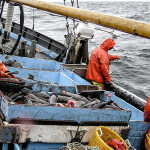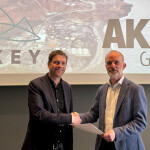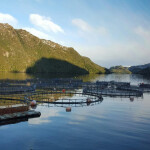Sea Pact, a collaborative association of 11 leading American and Canadian seafood companies, has issued an appeal to the industry, urging it to use the COVID-19 pandemic as an opportunity to work together on supply chain issues.
Sea Pact, which counts Inland Seafood, Seattle Fish, Fortune Fish and Gourmet, and Santa Monica Seafood as members, is calling on the North American seafood industry to work together to “face the unprecedented challenges of the COVID-19 global crisis,” the organization said in a press release.
“It’s more important now than ever to come together as a unified seafood industry in all the ways that we can. Our call to action is for all members of the seafood industry to work together now and maintain our responsibility to provide a critical healthy sustainable protein supply,” Sea Pact said. “A global crisis requires collective action and a global mindset to support institutional learning that will endure after the crisis. Sea Pact wants to ensure that the seafood industry and the people and communities it serves collectively get through this successfully, to not only survive, but thrive when the world emerges from this crisis.”
Sea Pact members are sharing where they are facing business challenges as well as their creative responses across multiple companies and geographies to share information and find innovative ways to adapt and build new best practices, Sea Pact Managing Director Rob Johnson said.
“We have laid a strong foundation of trust from working closely together in non-crisis situations, and that ‘trust bank’ is allowing us to support each other’s ability to adapt our businesses and find and replicate creative solutions,” Johnson said.
Sea Pact companies are offering discounts and donations to employees and partners and some have shifted to direct-to-consumer sales and home deliveries and from foodservice to retail. And the organization, which funds seafood sustainability projects, said it is extending flexibility to its partners in meeting project deliverables and timelines.
New Bedford, Massachusetts-based Blue Harvest, which is not a member of Sea Pact, is also urging buyers and consumers to support American seafood during the coronavirus crisis. It’s an opportunity for U.S. retail buyers to support domestic fisheries, Blue Harvest President and CEO Keith Decker
“Everyone is scrambling to secure their overseas supplies, when there are fish here in the New England area,” Decker said. “How do we get people to understand that we have fish off the U.S. coast that is the same as what is being purchased from Iceland and Norway?”
Around 80 percent of the haddock quota and 92 percent of the pollock quota was left in the water last year, he noted.
“There is no real risk with the ability to get it here, and it is cost-effective here. The problem is that there are no markets for it here,” Decker said.
An investigation by The Nielsen Company into how consumer preferences have been altered as a result of the COVID-19 outbreak has found “shoppers are exhibiting signs that they may steer away from products that traveled long distances with multiple human touchpoints…” Blue Harvest said in a press release. “The study finds that ‘consumers have generally displayed strong preferences for local dairy and fresh produce brands and products versus those coming from further afield.’”
“As distressing as the current world situation is – both epidemiologically and economically – our New England fisheries need to rise to the challenge to meet the needs of our citizens,” Blue Harvest said.
The Environmental Defense Fund (EDF) is also urging U.S. consumers to look for new ways to add American-caught fresh fish to their diets.
“In addition to being a healthy option, according to the U.S. Food and Drug Administration and other public health experts, seafood remains a safe option at grocery stores and for takeout at restaurants, since there is no evidence that food or food packaging have been associated with transmission of the virus,” EDF said in a press release.”
EDF is encouraging consumers to seek out opportunities to purchase directly from fishermen and local seafood markets. For example,” direct-to-consumer sales from boats landing at docks has proven to be an effective means in places like San Francisco and elsewhere around the country,” EDF said.
“The U.S. has some of the healthiest and most sustainable seafood in the world. By seeking out domestically caught fish, Americans can support fishermen and the ocean during this difficult time,” Eric Schwaab, senior vice president for EDF Oceans program, said in a press release.
Photo courtesy of James Kirkikis/Shutterstock







